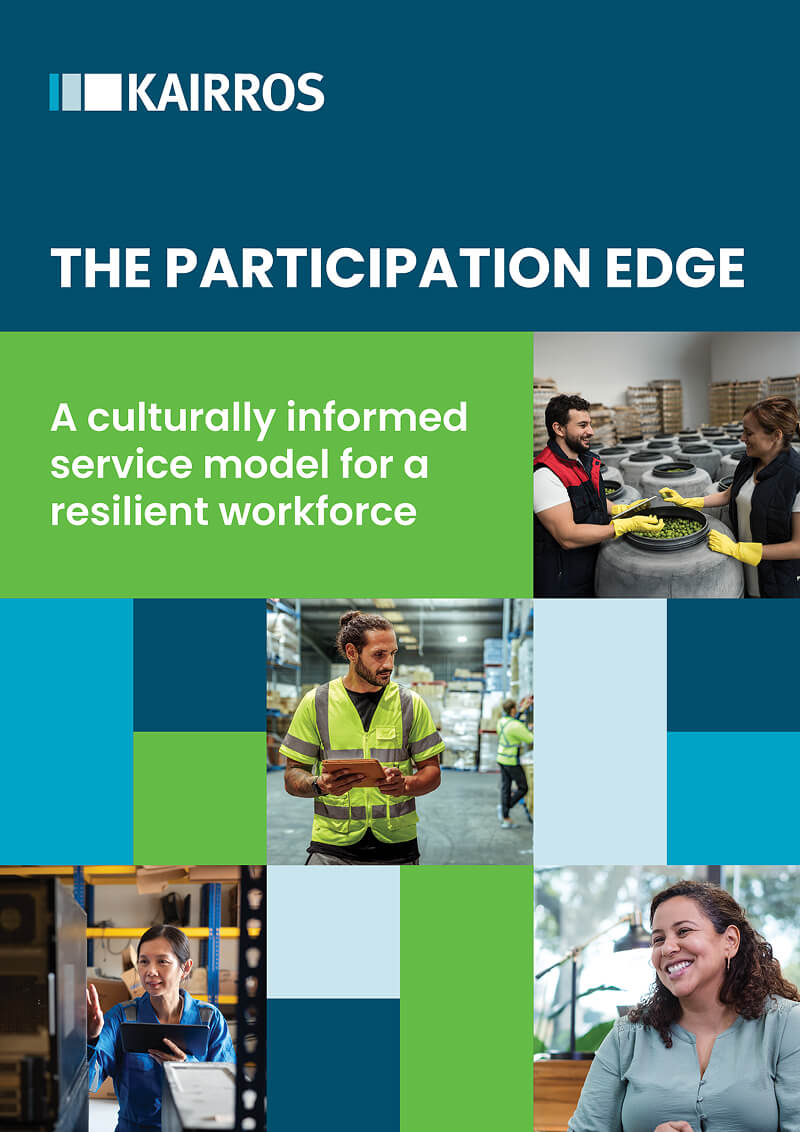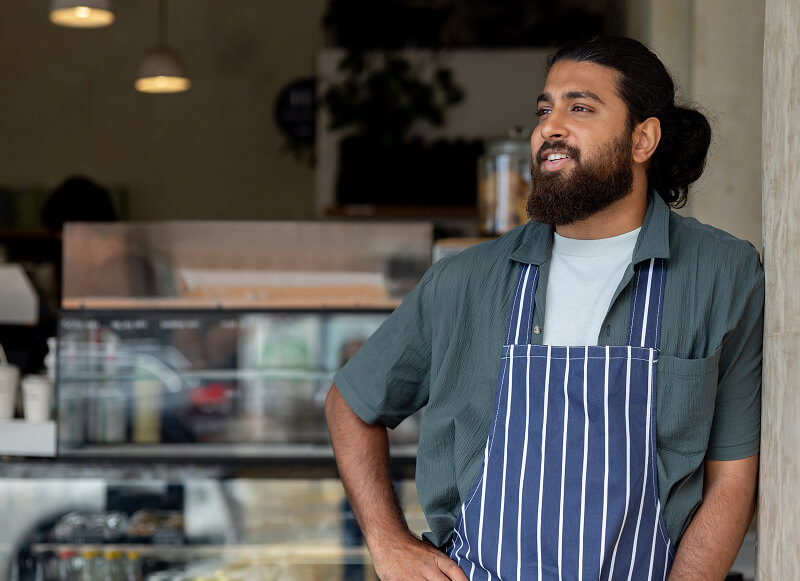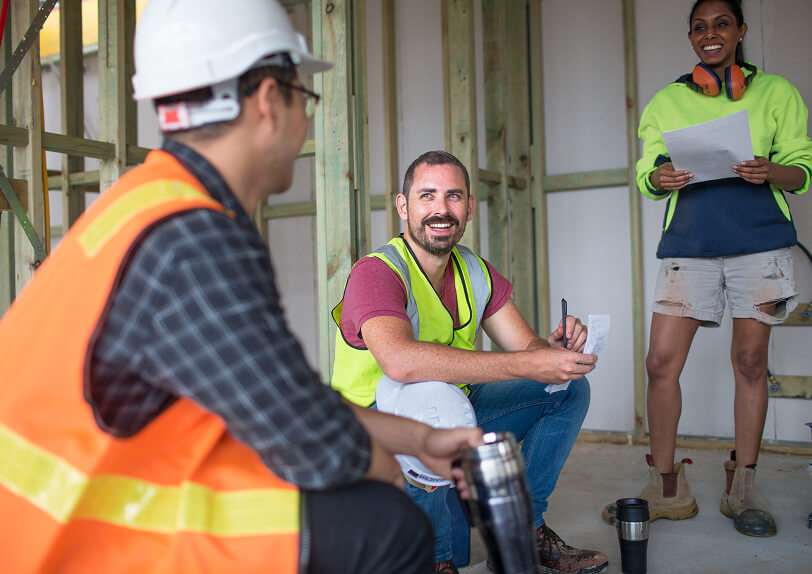Research-led workplace rehabilitation
Over the last 30 years our research findings have shaped our service delivery model, ensuring we support the distinct needs of diverse individuals and address identified barriers, aligning with emerging best-practice to achieve an equitable recovery for all.

NEW WHITE PAPER
The Participation Edge: A culturally informed service model for a resilient workforce
Australia’s greatest strength can be found in it’s people.
While our workforce drives prosperity, Australia is navigating a productivity challenge. At a time when the Federal Government’s Economic Roundtable is driving national debate, there’s a strong focus on building new skills across the workforce.
Equally, retaining skilled workers is just as important.
At Kairros, we’ve proven that smart approaches to workplace rehabilitation are key to making sure talent stays where it’s needed. Our new White Paper will share how our diverse recoveries service model delivers lasting results, including:
- Durable recovery outcomes at rates above industry average
- Claims at half the cost
To find out more, download the White Paper at the link above.
Our recent research findings
Employment and long-term unemployment status for migrants in Australia
Promoting the need for a specialised approach to Return to Work services for CALD individuals
Australia is home to over 7 million migrants, with 32% of the population born overseas. The cultural and linguistic diversity of this group is vast, representing nearly every country globally and over 300 languages spoken in homes across the nation. Despite this diversity, Culturally and Linguistically Diverse (CALD) populations – especially recent and humanitarian migrants – face persistent employment challenges and poorer long-term outcomes in work, health, and wellbeing compared to non-CALD Australians.


Personal injury risks for migrants in Australia
Scoping review of focus industries – manufacturing, construction and healthcare
The literature highlights clear disparities in the types and frequencies of work-related injuries (WRIs) experienced by migrant versus local workers in Australia’s manufacturing sector. Migrant workers are consistently shown to experience higher rates of physical trauma and fatal injuries, often in more hazardous job roles with less support, while local workers tend to have a wider spread of minor injuries and better access to recovery resources.
The value of a specialised approach to bridge the gap for CALD communities in healthcare
The ‘Health Navigator’ role
Culturally and linguistically diverse (CALD) populations have significant health outcome disparities compared to dominant groups in high-income countries (Hilder et al., 2019). The challenge to provide accessible and culturally competent healthcare in Australia has been an issue for decades, with a paper published in 2019 suggesting that consumers from CALD backgrounds in Victoria and NSW are still yet to be adequately acknowledged with contemporary strategies to facilitate patient engagement (Harrison et al., 2019). Strategies and services to reduce the language, cultural and social barriers to health services are crucial to improving healthcare utilisation and health outcomes.

Meet our diverse recoveries expert

Ivy Wang
National Diverse Recoveries Services Manager
Ivy Wang, our National Diverse Recoveries Services Manager, is an expert in cultural safety and culturally responsive workplace rehabilitation. Ivy leads our team’s ongoing research and training in this field, as well as our partnership with Senior Research Fellows from Monash University.
Ivy joined Kairros in 2017, bringing a wealth of expertise in supporting culturally diverse clients and the barriers they face. Holding dual Bachelor’s degrees in Psychology and Communication from Beijing Normal University, and a Master of Professional Psychology and a Master of Occupational Therapy in Australia, Ivy champions an approach that is grounded in a deep respect for each person’s unique journey, to empower clients throughout their rehabilitation process.
Throughout her time at Kairros, Ivy’s unwavering commitment to excellence has earned her industry recognition, including the iCare Industry Champion Award (2020) for Outstanding Care & Service in Rehabilitation and Support, and the ARPA NSW Outstanding Consultant Award (2019).
Ivy is fluent in English, Mandarin, and Cantonese, her own diverse background allows her to connect with clients from all walks of life, providing meaningful support on their journey towards recovery.


